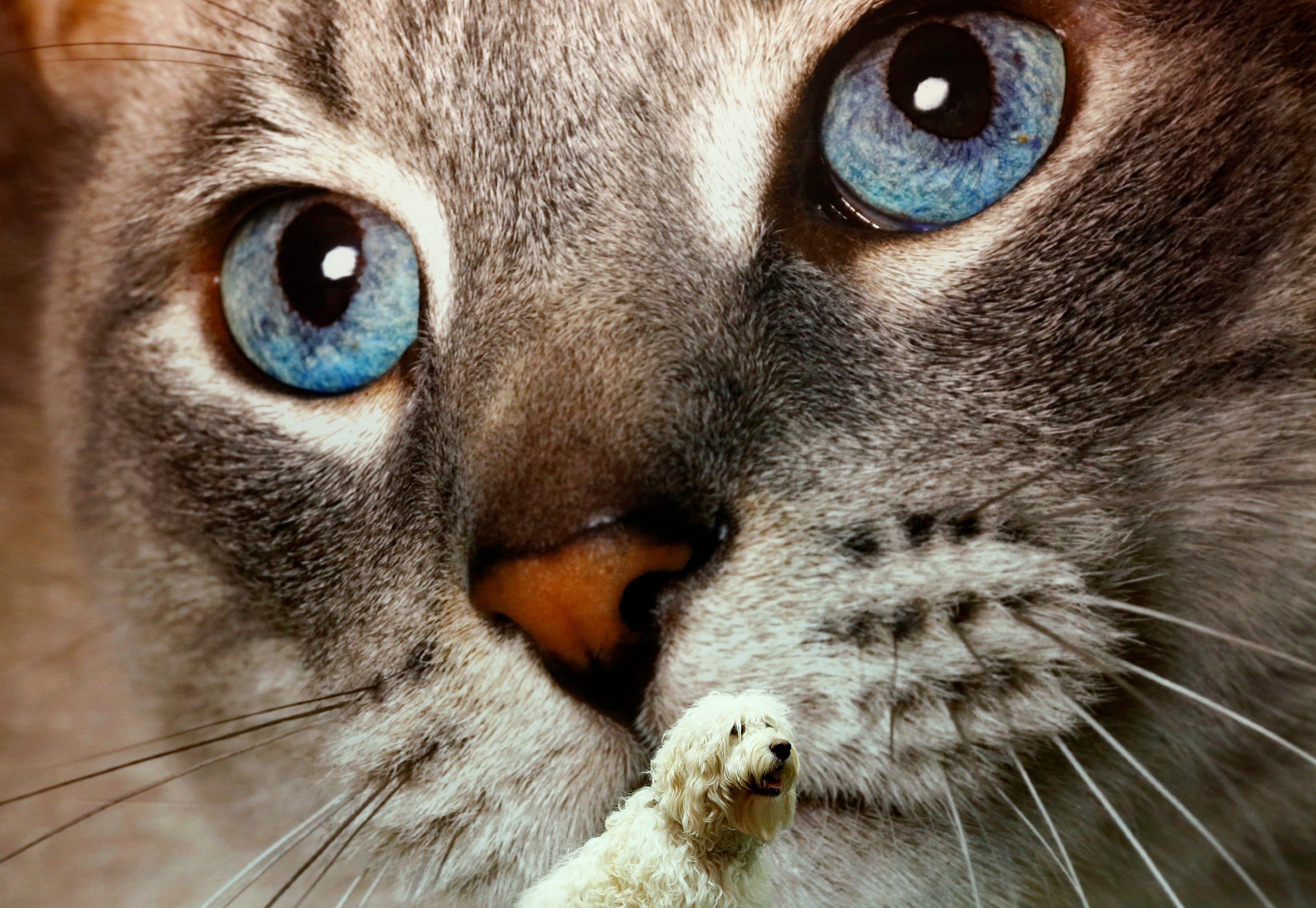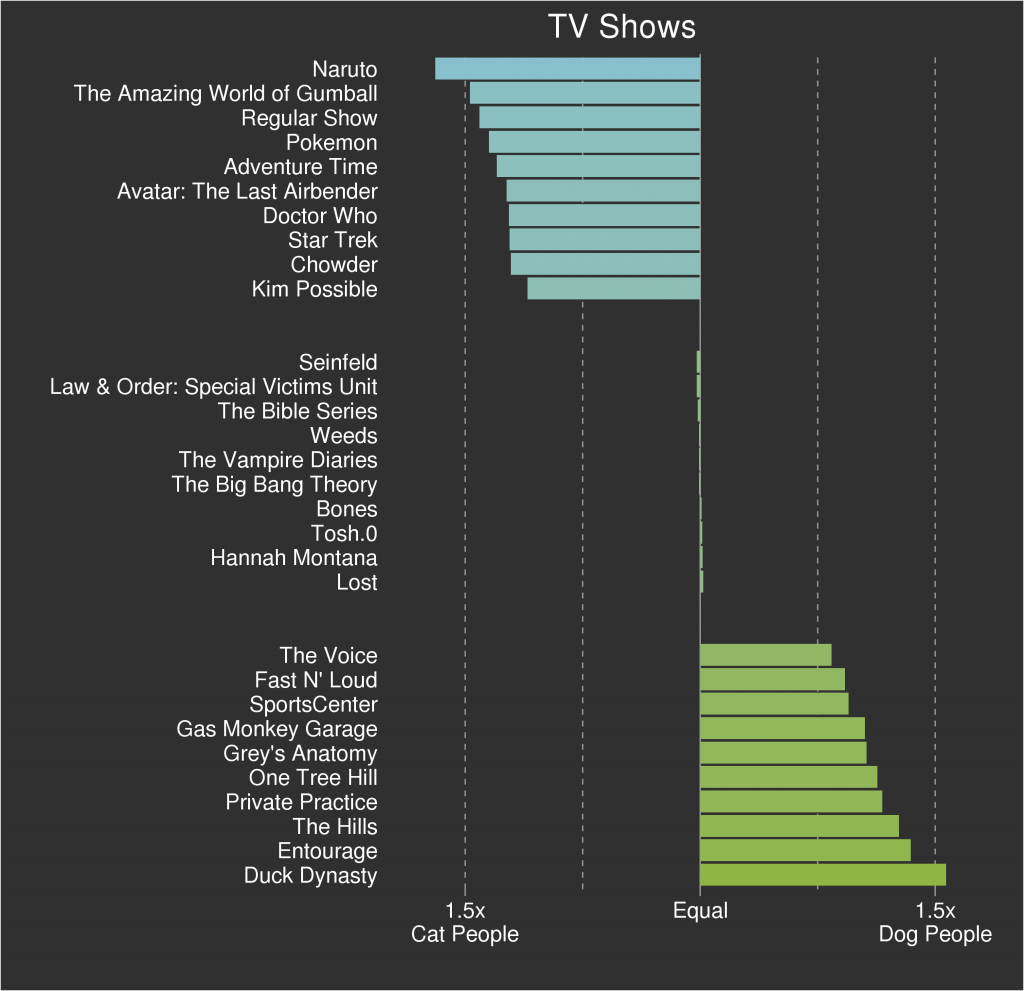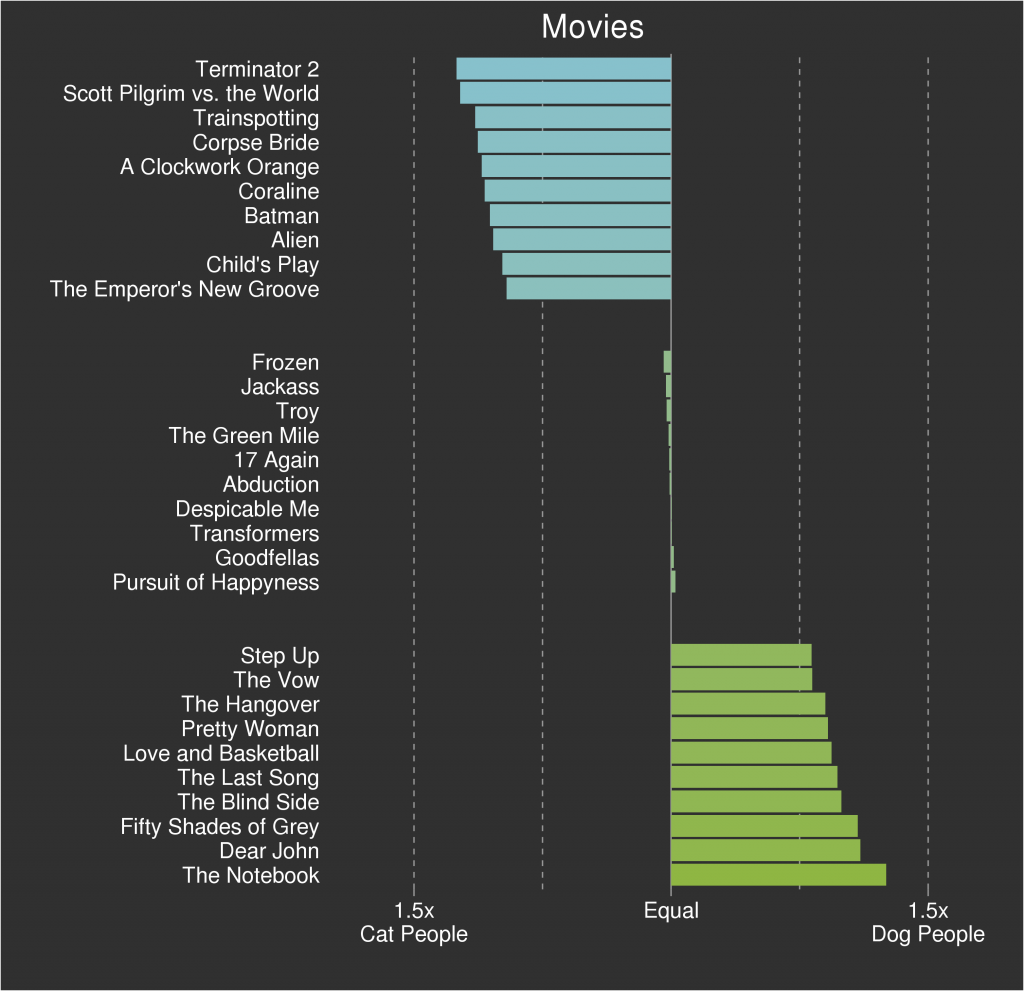Cat person or dog person? Here’s what your answer reveals
Facebook shows that asking if someone prefers dogs or cats might be an important question
Bailey Bear, a Golden Labradoodle, sits in front of a picture of a cat during the first day of the Crufts Dog Show in Birmingham, central England March 7, 2013. REUTERS/Darren Staples (BRITAIN – Tags: ANIMALS SOCIETY) – RTR3EOOY
Share

The question comes to each of us, inevitably: Are you a cat person or a dog person? Answering is stressful, for it is not a simple query. It feels immediately like a question meant to harshly categorize us all, to set us into separate – some might say rival – camps. And therefore, it also feels like a frivolous inquiry for adults to make of one another, the kind of thing relegated to the pile of questions we reach for when a date has gone very poorly and we are searching for something to say.
Or so we might think.
Facebook is not the first to show the differences between “cat people” and “dog people,” but unlike other studies that have speculated on similar personality traits – cat people are more introverted; dog people are more outgoing – Facebook has more interesting data to mine. Like our favourite books and movies – that is, not the personality traits we exhibit unconsciously, but the things that make up our self-selected personalities, the ones we present to the world.
Which means that Facebook’s latest blog on the differences between dog and cat people, published to mark International Cat Day, might move this annoying question further up the chain of Important Things You Should Discuss, on a date or otherwise. As it turns out, if you both like dogs or cats, you probably both like a few other things, too. Maybe just as important, you both might also hate the same things.
This is, of course, assuming you have a date at all. And if you’re a cat person, it’s more likely that you haven’t been on one lately or, that if you have, it went poorly. According to Facebook, 30 per cent of users who are cat people are single, whereas only 24 per cent of dog people are. The difference might come down to simple personality traits, but Facebook speculates that it could have something to do with dog people generally having a larger circle of friends, therefore maybe a larger pool of candidates to choose from. While cat people still get invited to more events, overall, one might have to believe that they talk, or at least befriend, fewer people while there.
But let’s assume a date does come about, for both a dog and cat person. What sort of things might they enjoy reading or watching on TV?
In short, dog people like happy and love-y things and cat people enjoy… things that are less love-y and happy.
For instance, there are higher proportions of dog people on Facebook who admit to being fans of books by Nicholas Sparks like The Notebook, Dear John, and The Last Song. Cat people are apparently more partial to dystopian novels like Brave New World, 1984, and World War Z.

When it comes to TV, cat people favour fantasy shows like Star Trek and Doctor Who or anime like Pokemon and Naruto. Dog people, on the other hand, are more partial to reality TV like The Voice, The Hills, or Duck Dynasty (the show most disproportionately favoured by dog people) and dramas like One Tree Hill and Grey’s Anatomy.

And favoured movies broadly reflect taste in books and TV. Dog people enjoyed film adaptations of their favoured books (The Notebook, Dear John) and films like Pretty Woman or Fifty Shades of Grey. Cat people like their movies like they like their books: dark. Cat people on Facebook favoured stuff like Trainspotting, Terminator 2, Clockwork Orange, Batman, and Alien. Curiously, however, Coraline and The Emperor’s New Groove also appear on that list.

Those titles present some stark differences, but don’t despair, for there is common ground. Both dog people and cat people enjoyed reading The Great Gatsby and The Hunger Games in relative proportion. Same thing goes for movies like Goodfellas and Despicable Me. And, push comes to shove, there is always Seinfeld, though that – a show that famously featured no learning and no hugging – is enjoyed slightly more by cat people than dog people, obviously.
It all raises an interesting possibility.
If it is true that likes and dislikes of cultural content like books and movies and TV shows – the things that people discuss most day-to-day, and which for that reason tend to carry disproportionate weight and importance in the grand scheme of things – can be predicted by someone’s preference of dogs or cats, then perhaps the question deserves more attention than we currently give it.
What if, rather than “are you a dog person or a cat person?” being a throwaway line to fill the vacuum of space between two strangers, it is in fact one of the most important questions we can ask each other? Maybe this is not a question of last resort but the very first. Maybe this is the only thing we should immediately ask someone to gauge whether we might have anything to talk about from that point onward. Just imagine how many other questions we could eliminate (Have you read this? Do you watch that?). Think of the time we could all save.